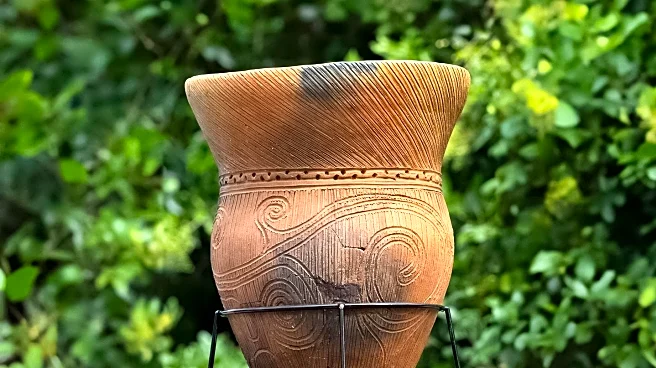What is the story about?
What's Happening?
A family in New Orleans uncovered a marble tablet with Latin inscriptions while cleaning their backyard. The tablet, identified as a 1,900-year-old Roman grave marker, belonged to Sextus Congenius Verus, a sailor in the imperial navy. The artifact had been missing from an Italian museum for decades. Tulane University anthropologist Daniella Santoro and classical archaeologist Susann Lusnia confirmed the tablet's historical significance. The tablet was originally part of a cemetery in Civitavecchia, Italy, and had been documented before World War II. The FBI is currently in discussions with Italian authorities to repatriate the artifact.
Why It's Important?
The discovery of the Roman tablet in New Orleans highlights the unexpected ways historical artifacts can travel and be rediscovered. This event underscores the importance of preserving cultural heritage and the role of international cooperation in repatriating artifacts. The tablet's return to Italy could strengthen cultural ties and promote historical research. For the U.S., it serves as a reminder of the diverse historical narratives that can be found within its borders, potentially influencing local historical interest and tourism.
What's Next?
The FBI is coordinating with Italian authorities to facilitate the repatriation of the Roman tablet. This process may involve legal and diplomatic discussions to ensure the artifact's safe return. The discovery may prompt further investigations into other potential artifacts in the area, encouraging local historians and archaeologists to explore similar finds. The story could also inspire educational initiatives focused on Roman history and archaeology.
Beyond the Headlines
The rediscovery of the Roman tablet raises questions about the ethical responsibilities of artifact ownership and the importance of provenance research. It highlights the cultural significance of grave markers in Roman society, emphasizing the desire for legacy and remembrance. The event may lead to discussions on the preservation of historical artifacts and the impact of war on cultural heritage.


















